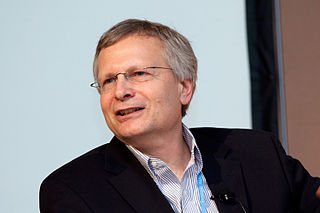A Quote by Lawrence Summers
Global capital markets pose the same kinds of problems that jet planes do. They are faster, more comfortable, and they get you where you are going better. But the crashes are much more spectacular.
Related Quotes
Failures are much more dramatic than successes, and people like drama. I think this is why automobile races draw such crowds. People expect spectacular crashes, which we tend to find more interesting than cars just racing around the track. The same is true of bridges, buildings, or any structure or machine.
I saved $725 million on the 90 planes. Just 90. Now there are 3,000 planes that are going to be ordered. On 90 planes I saved $725 million. It's actually a little bit more than that, but it's $725 million. Gen. Mattis, who had to sign the deal when it came to his office, said, "I've never seen anything like this in my life." We went from a company that wanted more money for the planes to a company that cut. And the reason they cut - same planes, same everything - was because of me. I mean, because that's what I do.
At a certain fork in the road of automatization, Europeans chose to have more time, and they work far less than we do and get much longer vacations. We chose to have more stuff, the stuff sold to us through those beckoning adjectives-bigger, better, faster: Jet Skis, extra cars, second homes, motor homes, towering slab TVs, if not the time to enjoy them or to enjoy less commodified pleasures.
The digital revolution is far more significant than the invention of writing or even of printing.”“The better we get at getting better, the faster we will get better.”“In 20 or 30 years, you’ll be able to hold in your hand as much computing knowledge as exists now in the whole city, or even the whole world.”“The rate at which a person can mature is directly proportional to the embarrassment they can tolerate.”“The key thing about all the world’s big problems is that they have to be dealt with collectively. If we don’t get collectively smarter, we’re doomed.
Unlike national markets, which tend to be supported by domestic regulatory and political institutions, global markets are only 'weakly embedded'. There is no global lender of last resort, no global safety net, and of course, no global democracy. In other words, global markets suffer from weak governance, and are therefore prone to instability, inefficiency, and weak popular legitimacy.
One of the problems with industrialism is that it's based on the premise of more and more. It has to keep expanding to keep going. More and more television sets. More and more cars. More and more steel, and more and more pollution. We don't question whether we need any more or what we'll do with them. We just have to keep on making more and more if we are to keep going. Sooner or later it's going to collapse. ... Look what we have done already with the principle of more and more when it comes to nuclear weapons.
When you see the same familiar faces, it's nice when you get a chance to play with the same musicians. You start to develop this shorthand so everybody knows where you're at and where you're going, but then again, there are always surprises. But the more people are comfortable with the material, the more free you can be with the music.





































